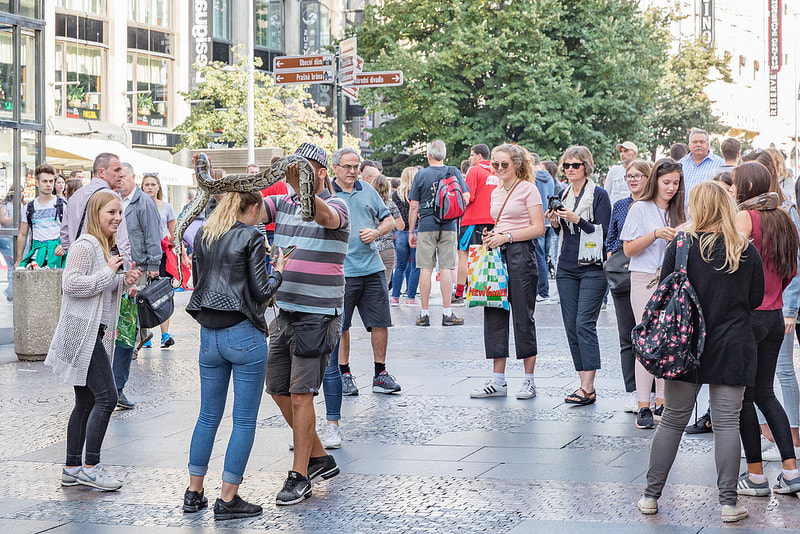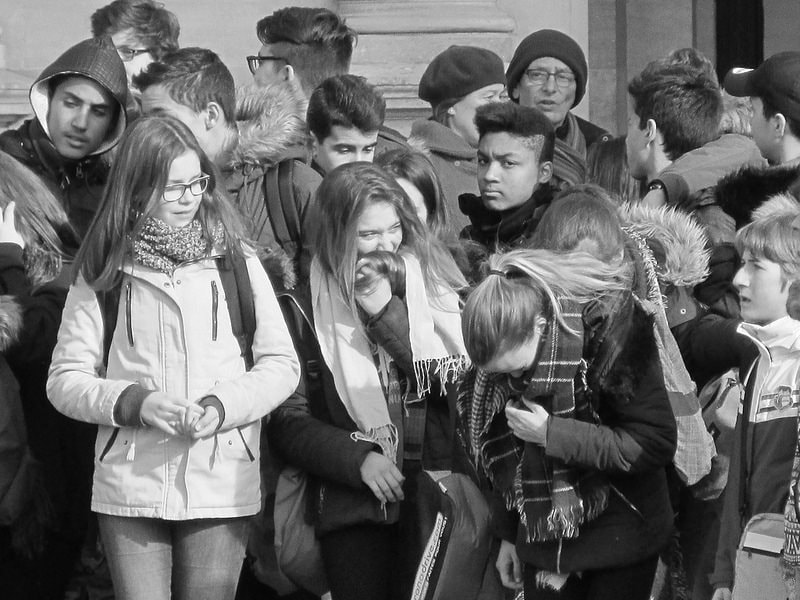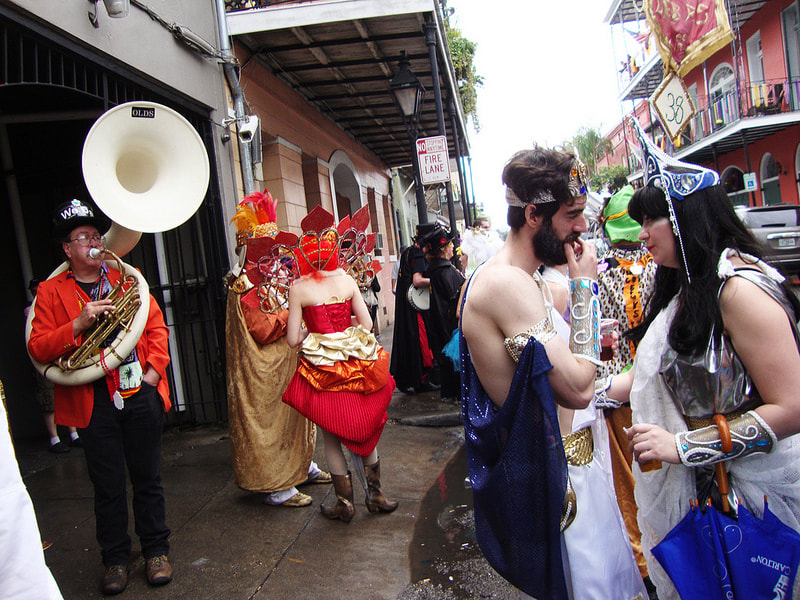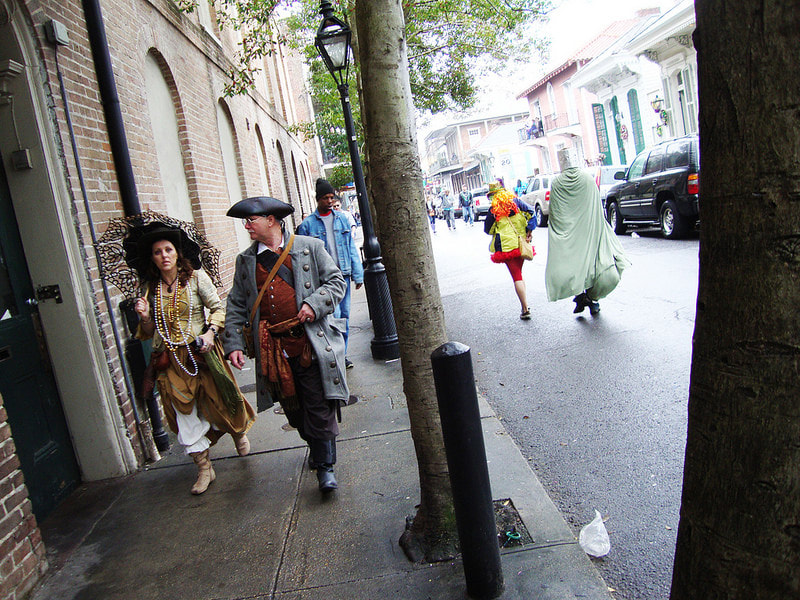If God is Love,
Then What’s Love
Got to Do With It?
Gregory Hamlin
Claremont School of Theology, 2018
|
If you are a millennial then the chances are you weren’t raised as a church goer and the concept of God has no relevance to your life. Before we go any further, in the interest of full disclosure, I should tell you I’m a Christian, but wait! Not that kind of Christian. Because I understand global warming science, my faith leads me to put solar panels on my house, take public transport to work, and “my other car” is an electric vehicle. Because of my faith, I support equal marriage rights and worship in a church that marries LGBTQ people. My faith inspires me to join with others to feed hungry people, advocate politically for the poor, educate children of all races, economic status, and faith traditions (including none).
If you don’t believe in a god that picks who goes to heaven and who goes to hell, then know that I don’t either. If you don’t believe that god gives wealth and health to people who do what he tells them too, neither do I. For that matter, I don’t believe god has gender. If you don’t believe that god uses earthquakes, storms, cancer, or lightening to punish people, neither do I. If you don’t believe the Bible is the direct dictated word of God, know that I don’t either. So is there an understanding of god that could make sense to us? Can god and science mix? What kind of god would make a difference in your life, mine, the other people on this planet, and for that matter, the planet itself? You may have noticed that I haven’t been capitalizing the word god. That’s because for me and perhaps you too, God with an upper-case g conjures up images of an old man with long grey hair and beard but the body of a fit twenty-five-year-old sitting on a throne, or highway billboards with scary messages about answering to God or else, and big church organizations asking for money to support the TV network that is doing God’s will. A professor at Harvard who thinks and writes about new ways to think about god, Elisabeth Schussler Fiorenza, has come up with a spelling that helps us to imagine god differently: G*d. I’d like to use that spelling in this piece. The traditional way to think of G*d for many years now was as omniscient and omnipotent, so, knowing everything and able to do anything. Anyone who had ever wondered why there is injustice in the world such as innocent children starving or being abused, or good, generous people getting terminally ill or killed in an accident, finds it hard to understand why a G*d who can do anything doesn’t stop these things from happening. Some people say that if bad things happen to people it’s because G*d knows they deserve it. But we know from our experience that even if that were sometimes true it isn’t true of many people we know who have suffered. Here’s where some folks bring in the knowing everything part. They say that we don’t understand why innocents suffer but G*d knows things we don’t know or understand, and “He” must have a reason for letting this happen. Some folks even would say that God knows what is going to happen in the future. G*d has a plan. That seems to me to make G*d the epitome of irrelevance. If G*d knows the future then nothing I say, do, think, matters to G*d. There is no point in a “relationship” with G*d if we can’t surprise each other. What if G*d couldn’t interfere in the world in ways that ignore how the physical world works? Even if G*d could do that, it would still leave questions like: why did G*d let one child fall to the ground from the fifth floor but not the other child? If G*d could act in that way wouldn’t that be arbitrary? But what if we imagine that G*d can influence the way the world actually works to bring about the best outcomes. Perhaps G*d’s power can help a person’s body fight cancer or heal from a brain injury. I think God’s ability to bring about best outcomes is made more powerful and possible when we join in the process. When we see injustice, and are moved to act to change things, we participate with G*d who also works to change things. If G*d is like that, then working for the good of others and the planet is an act done in relationship with G*d. So, what might G*d do when we haven’t made the best efforts or decisions? Perhaps G*d adapts and simply seeks the next possible best outcome given the new circumstances. Let’s say we have been spending a lot of our evenings at a bar and driving after drinking. One night we crash our friend’s car and are injured. A better outcome would have been to stop drinking so much, or on that night, to take an Uber home. But we didn’t chose that and now G*d must adapt to this new situation. In fact, the crash itself may have been G*d’s best outcome at that moment when we hit a lamppost instead of killing another person. Wanting the best for someone is a way of loving them, isn’t it? Wanting the best for them, even when they mess up, is unconditional love. What if G*d feels that way about all creatures, not just human beings? What does that mean for how we treat animals and the environments they live in? If God wants the best possible outcomes for them, what is our responsibility in that? How should we participate with G*d in seeking the best possible outcomes for the inhabitants of the oceans, rivers, wetlands, deserts, mountains, polar ice caps, or for that matter cities? Should we consider G*d to be in the same kind of relationship with animals? If so doesn’t that mean that we need to be engaging with G*d to achieve the best possible outcomes for them too? Hasn’t science taught us that our health and wellbeing depend on the health of the earth’s ecosystems? The best outcomes for halibut in the Atlantic or tree frogs in the Amazon rainforest are in fact the best outcomes for all other creatures including us. For many years, the established churches have supported the view that human beings have dominion over the earth and other creatures for our own benefit. The world was to be exploited. Even worse, sometimes religious institutions used the Bible to justify exploiting other people including slavery. It is no wonder that so many people have rejected organized religious institutions and leaders. On the other hand, there have been many people of faith who have understood G*d in ways that lead them to fight exploitation and oppression. Look at Mahatma Gandhi, Martin Luther King, Jr., Rosa Parks, Abraham Joshua Heschel. These people and others have been inspired, encouraged, empowered, and emboldened by their understanding of G*d to speak out, take direct action, and face the consequences of their resistance. For them G*d was relevant in their lives and with G*d they worked to bring about a better outcome for others. Certainly, many people find the inspiration and strength to do social and environmental justice work without belief in G*d. But what I hope you will see is that it is wrong to think that all religious people don’t care about the things you care about. Believing in G*d does not mean supporting the status quo and oppressive power structures. For many of us, the opposite is true. We see Jesus, Mohammad, the Buddha, and others as people who questioned authority, fought for justice, encouraged us to love one another, saw the world and other creatures as gifts to be nurtured and cherished. Not only that, but I think the kind of G*d I’ve been imagining in this short essay seeks an outcome where we all work together for the best possible outcome for each other and the planet. And, G*d probably wants us to do that with the kind of unconditional love that G*d shows us, by continuing to seek those outcomes when one or more of us does things that clearly don’t lead to the best possible outcomes. That kind of forgiveness gives us all hope that we can change direction and get back on track. It is a process that ebbs and flows. It’s a dance with G*d and each other. There are real and sometimes tragic consequences but always there is hope and there are ways to make thing better and sometimes to make the best of things. There are plenty of ways of describing or imagining a god that we cannot believe in. Rejecting some of those gods is right and necessary. But using our reason, our knowledge of the universe, and seriously considering the questions of why people and animals suffer and how we should live together are important. Human beings have been asking these questions for thousands of years or more. Trying to live without looking for answers to these questions can lead to malaise and even despair. If we consider some of these ideas and imaginings of what kind of god makes sense with what we know and long for we may find a G*d of love who has everything to do with it. |
Note from the Editor: If Gregory Hamlin's editorial interests you,
you might also be interested more generally in process theology.
Here are some places to links and a video that may be helpful.















